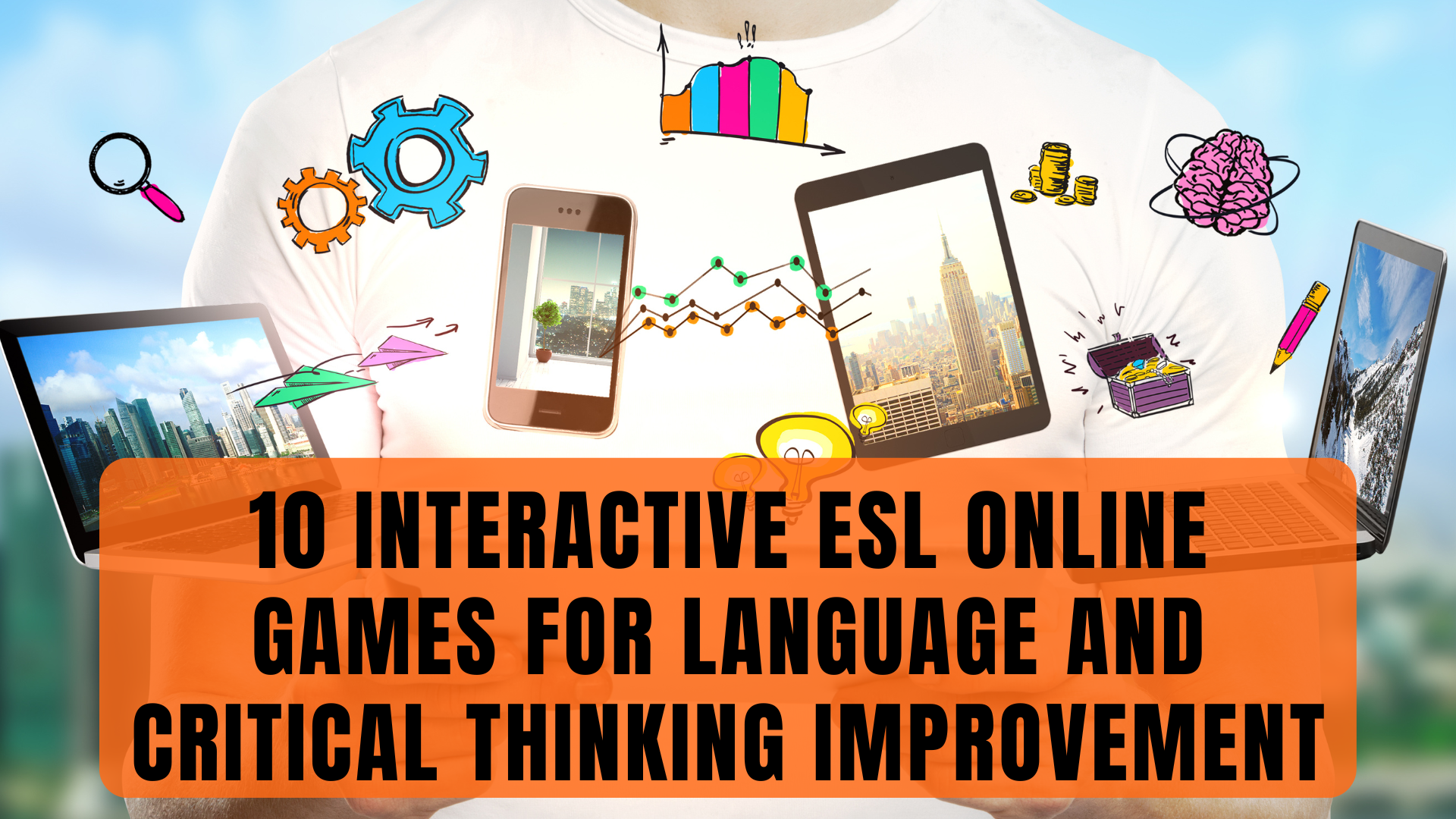In today’s digital age, online games have become a popular and effective tool for teaching various skills, including English as a second language. Interactive ESL online games, such as digital escape rooms, scavenger hunts, critical thinking games, and media literacy games, are not only fun and engaging but also provide students with unique opportunities to improve their language skills.
In this article, we will explore the benefits of using interactive games for language learning, and discuss how these games can help students achieve their language goals.
1. Enhanced Engagement and Motivation
Interactive games provide a dynamic and interactive environment that makes language learning more enjoyable and memorable. This can lead to increased engagement and motivation for students to continue learning.
2. Real-Life Practice
Many games simulate real-life situations. This allows students to practice their language skills in relevant and practical ways.
3. Improved Critical Thinking Skills
Games that teach critical skills, such as spotting fake news and hoaxes, and media literacy, help students improve their critical thinking and media literacy skills. These skills are essential for success in today’s digital world and will help students in their personal and academic lives.
4. Customizable and Convenient
Interactive games offer customization options, allowing students to tailor the game to their language level and learning goals. With the ability to play these games on a variety of devices, students can access language learning opportunities from anywhere and at any time.
5. Measurable Progress
Interactive ESL online games provide students with immediate feedback, allowing them to see their progress and identify areas that need improvement. This helps students stay motivated and track their progress.
Here’s a list of 10 interactive ESL online games you should check out:
Bad News Game
The Bad News Game is all about spotting fake news and hoaxes. You’ll be presented with news articles and videos and have to figure out what’s real and what’s not. It’s a fun way to improve your critical thinking skills and learn to be a media-literate person. Get ready to be challenged and have a blast doing it!
Fake News Game
This game is similar to the Bad News Game. It will challenge you to think critically and evaluate information sources, helping you become a savvier news consumer. So, get ready to flex your brain muscles and have some fun!
Interland
Interland is a free, online multiplayer adventure game created by Google that teaches digital safety, security and citizenship skills to children. Players explore four fantastical lands, completing challenges and quests while learning how to protect their online privacy, spot fake news, and be good digital citizens.
Digital Escape Rooms
The digital escape rooms at Madison Library are a fun and exciting challenge. These online puzzles will test your problem-solving skills and critical thinking as you try to escape a virtual room within a limited time frame. Immerse yourself in a world of digital elements and clues, to make the most of your escape room experience. With a variety of themes to choose from, there’s always a new challenge waiting for you and your friends.
Escape Team
Escape Team is an online interactive game that challenges players to solve puzzles and complete tasks within a limited time frame in order to escape virtual rooms. Players must work together to find clues, decode messages, and complete challenges in order to escape each room before time runs out.
Reality Check
Reality Check teaches you to find truth online by locating the source of a story, comparing it to other sources, and using fact-checking tools and reverse image searches. Each mission presents a story from your social network feed, true, false, or in-between. Find out by clicking on magnifying glasses on the page, then decide how reliable it is and how to respond.
Spent
Spent is an online game where you play as a low-income worker trying to survive a month with limited money. You must balance daily expenses and make tough decisions that affect your finances. It’s a thought-provoking game that gives players a glimpse into the challenges faced by those living in poverty.
Trivia Crack
Trivia Crack is a fun online game to test your knowledge of different subjects. Play against others by answering trivia questions and spinning a wheel for categories like history, science, art, sports, and more.
Elevate App
Elevate is a fun online brain-training app with daily challenges to improve your memory, attention, and processing speed. Personalized to your progress, it’s perfect for students, busy professionals, or anyone looking for a mental workout.
The Meaning of Beep: Cyberbullying
This game teaches players about the effects of cyberbullying and how to stop it. Players will have fun while they learn to identify and handle cyberbullying in different digital scenarios. The game is designed to encourage positive online behavior and help players become responsible digital citizens.
Interactive ESL online games are a valuable tool for language learning. With their ability to engage and motivate students, provide real-life practice, improve critical thinking skills, and offer measurable progress, these games can help students achieve their language goals and unlock their full potential. Try incorporating interactive ESL online games into your language learning routine today and experience the benefits for yourself.
Similar resources:
47 Interactive and Online ELT Resources for Teachers
Best English Games to Play in Your ESL Classroom
Engaging Online Teaching: ESL Activities and Games
Digital and Online Teaching Resources for Teachers Who Teach English from Home
